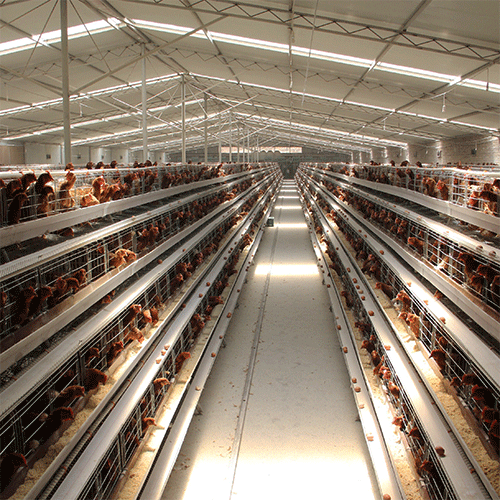Are Automatic Battery Chicken Cages the Future of Poultry Farming in Nigeria?
- Published in Chicken cages
Poultry farming in Nigeria has witnessed a revolutionary shift with the advent of automatic battery chicken cages. As the demand for poultry products continues to soar, farmers are exploring innovative solutions to optimize production while ensuring the welfare of the birds. Are automatic battery chicken cages the key to achieving these goals?
These cages offer a sophisticated and automated approach to managing layers, providing a controlled environment that enhances egg production. For a poultry farm aspiring to house 10,000 layers, the implementation of battery cages becomes a crucial consideration. The cages not only optimize space utilization but also streamline daily operations, making them a practical choice for large-scale poultry farms.

One of the significant advantages of these cages is their ability to promote hygiene and disease control. The design ensures that waste is efficiently collected, preventing the buildup of harmful pathogens. Moreover, the automated feeding and watering systems contribute to a healthier flock, reducing the risk of contamination. This is particularly important in the context of Nigeria, where maintaining a disease-free environment is paramount for sustainable poultry farming.
The investment in Nigeria poultry equipment, specifically automatic battery chicken cages, proves to be a strategic move for farmers looking to scale up their operations. The controlled environment created by these cages not only increases egg production but also minimizes stress on the birds, resulting in improved overall welfare. As the agricultural landscape in Nigeria evolves, embracing modern technologies like automatic battery chicken cages might be the key to meeting the rising demand for poultry products.
